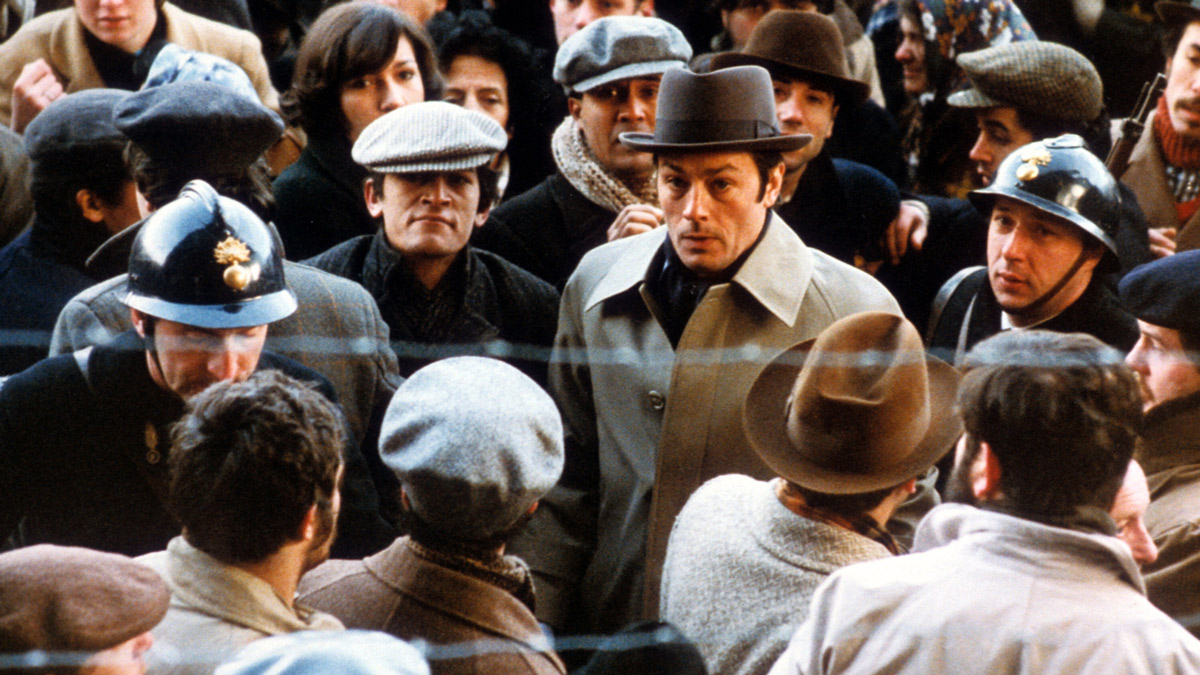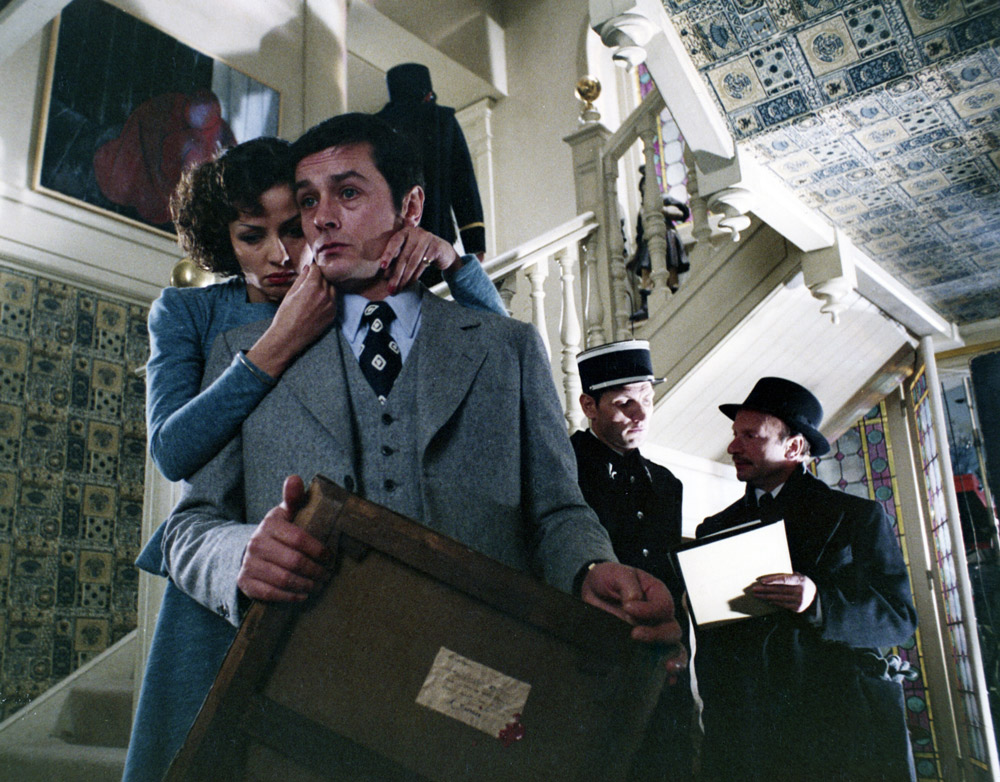
(c) Photofest / Getty Images
“The Mr. Klein” A faint chain of history and memory projected by director Joseph Losey
2021.07.03
looking at yourself in the mirror
If I had to pick a common theme among Rosie's many directorial works, two things immediately come to mind. 1. To depict changes in the power relationship between two people. 2. Capturing people by their reflection in the mirror.
As for the former, you should be able to understand it just by following the synopsis of each work. `` The Servant '' depicts a reversal of the master-servant relationship between two men. `` The Smell of Eva '' shows the grotesque changes in the relationship between a high-class prostitute and an up-and-coming writer. `` Love '' depicts how a beautiful relationship between a boy and an older woman falls apart. `` Melody of the Assassin, '' starring Alain Delon, is also a film about the love-hate relationship between a man who keeps waiting for himself to be killed and a man who is obsessed with killing him.
These films often incorporate the use of mirrors. When a person looks at the other person, a gaze through a mirror is used, and in scenes where a person's face is shown in close-up, a mirror is also used. The same goes for ``The Mr. Klein.'' Janine (Juliet Berto) puts on her makeup in front of the mirror. Robert faces the mirror in Mr. Klein's apartment with a razor in hand. And then, at the restaurant, Robert stares at himself in the mirror in amazement.

“The Mr. Klein” (c)Photofest / Getty Images
However, compared to ``Melody of the Assassin,'' which begins with a close-up of Alain Delon's face reflected in a mirror, the way it is used in ``The Mr. Klein'' is somewhat restrained. As time passes, Robert Klein loses the need to look in the mirror. His mirror image has already slipped out of the mirror and is walking around outside. There is no need to look in the mirror anymore. In order to see his face, he wanders around the city chasing the shadow of ``Mr. Klein.''
``The Mr. Klein'' was premiered in competition at the Cannes Film Festival in May 1976, but unfortunately it did not win any awards. With the end of the Vietnam War and the beginning of a new era, historical dramas with wartime holocaust themes may have seemed somewhat old-fashioned (although the film went on to win the Cesar Award for Best Picture and Best Director). awards, art awards).
It can be said that the work that won the Palme d'Or at this time clearly captured the mood of the times. This is the story of a man who looks into the mirror and talks to himself endlessly. It was Martin Scorsese's `` Taxi Driver .''
[References]
Michel Cimin, “The Story of an Exiled Soul: Film Director Joseph Rosy”, translated by Hideo Nakata and Ken Shimizu, 1996, Nippon Television Broadcasting Network, Inc.
David Caute, Joseph Losey A Revenge on Life, Faber and Faber Limited, 1996.
Text: Rie Tsukinaga
Film writer and editor. Editor of the magazine "Eiga Yokocho". He writes film reviews, columns, and interviews for Asahi Shimbun, Metropolitana, Weekly Bunshun, iD JAPAN, etc. He also edits books and movie pamphlets under the name Eiga Bar Editorial Office. Currently in charge of MC for the web program "Katsuben Cinema Club". eigasakaba.net
(c) Photofest / Getty Images

